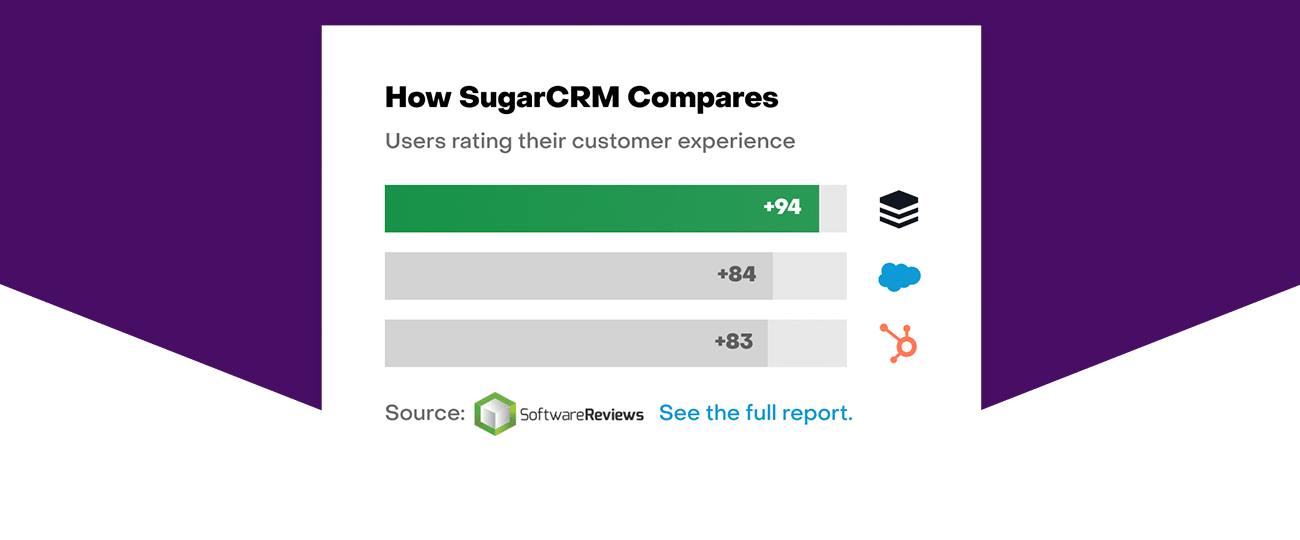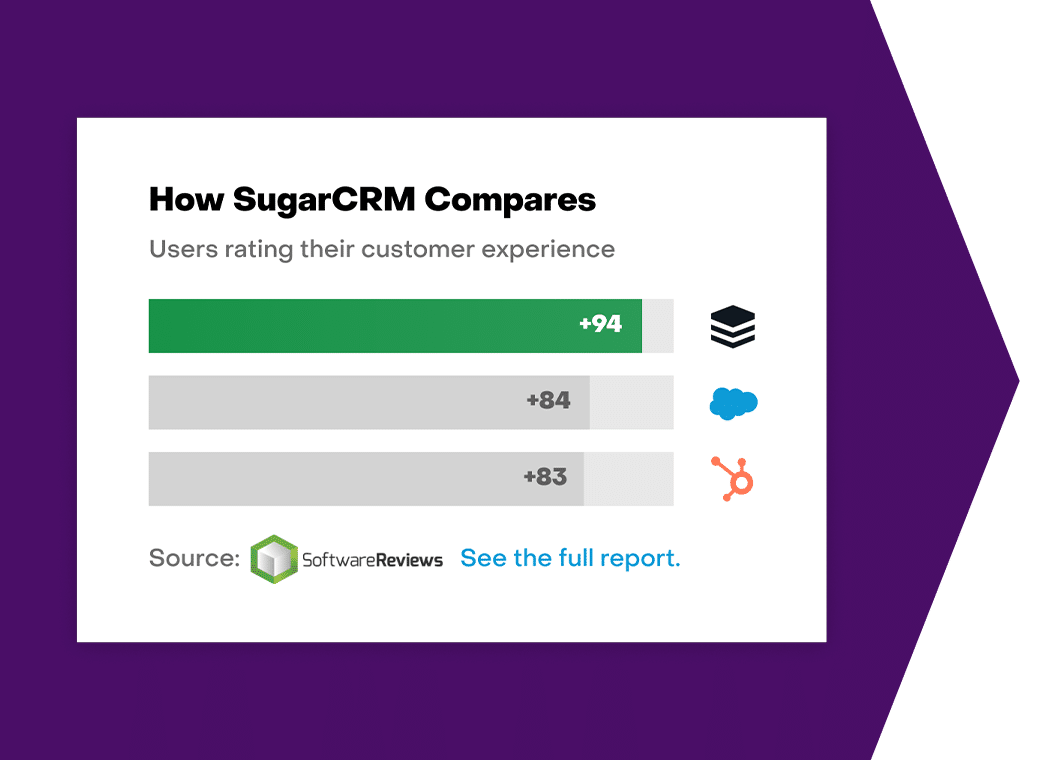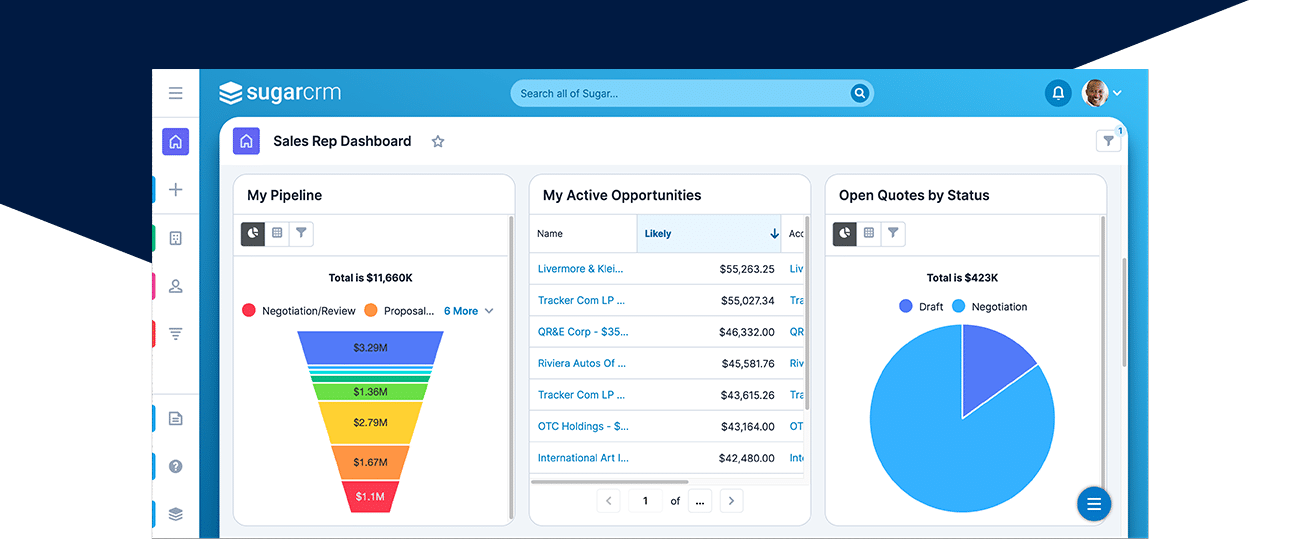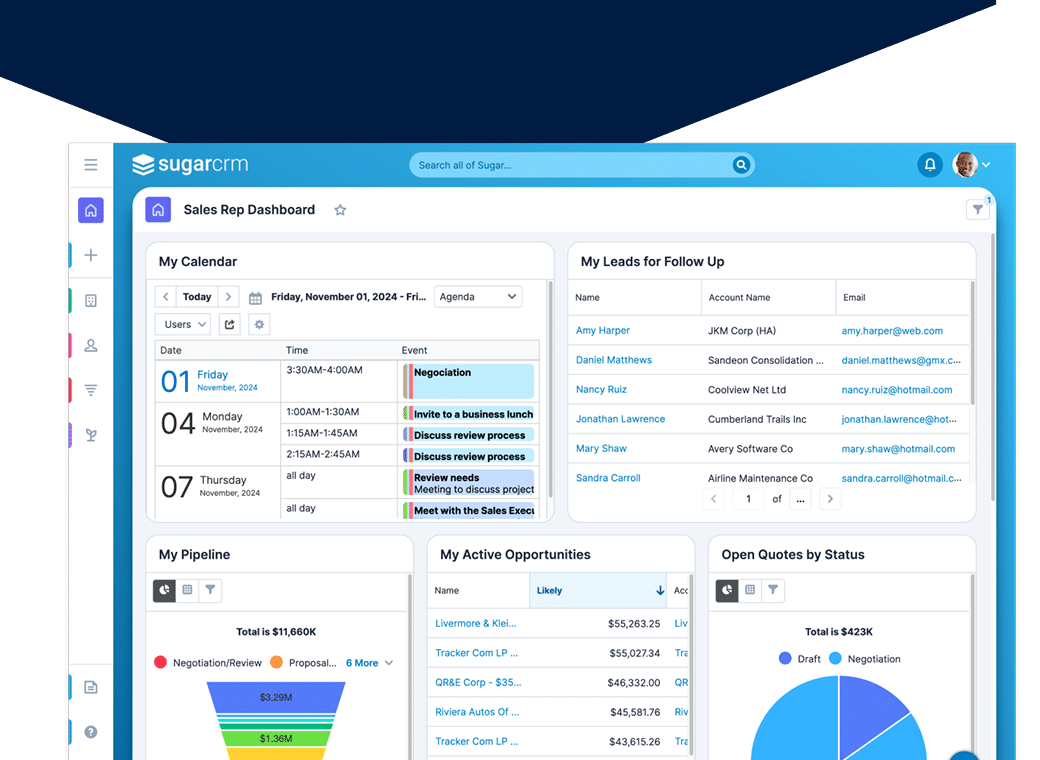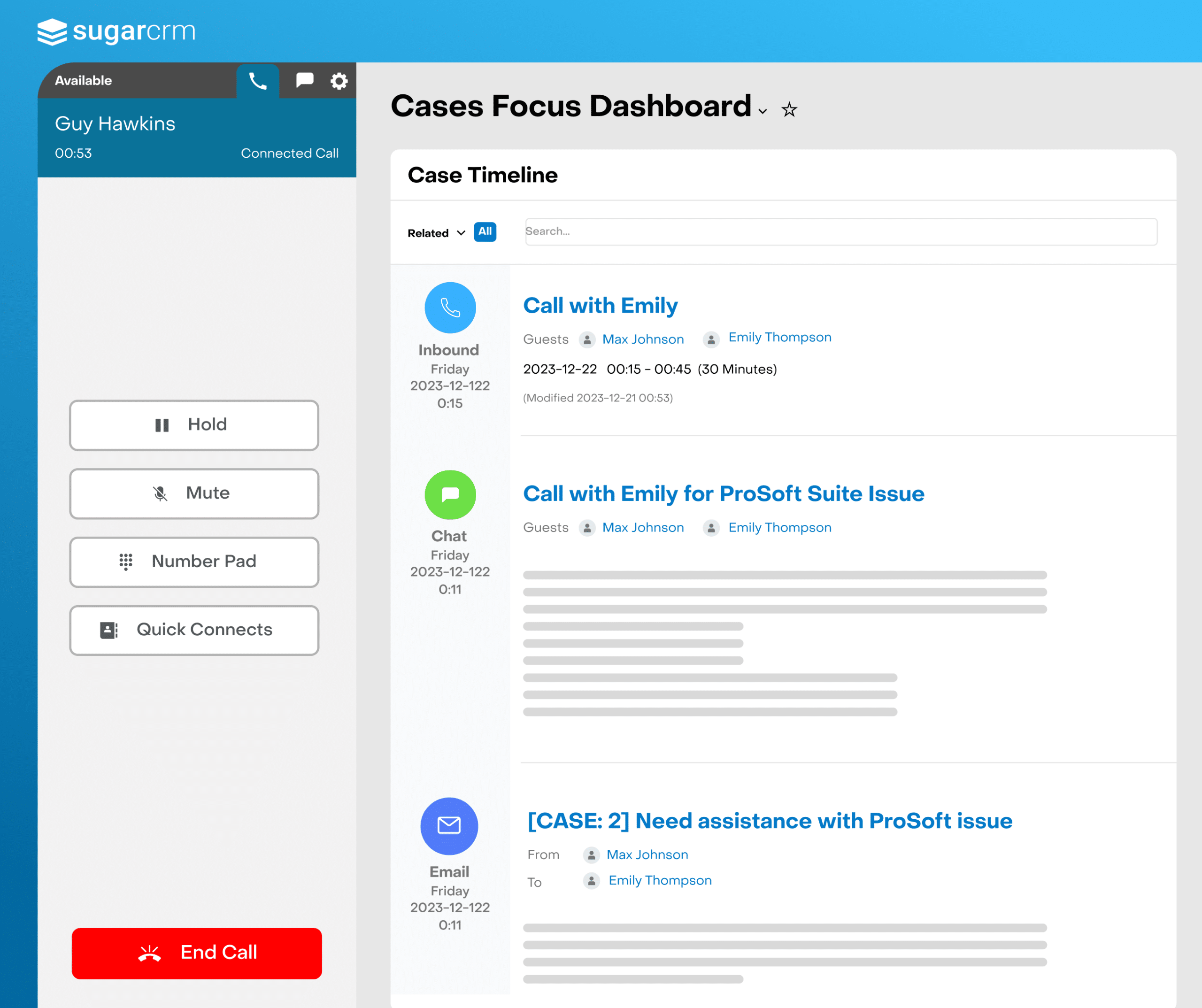Building Success: Sales and Customer Engagement Strategies for Manufacturers using CRM
In today’s competitive business landscape, enterprises can no longer afford to operate without clear goals and strategies in mind. For enterprises across manufacturing, where sales cycles are complex and customer journeys are long, it is especially critical to develop clear sales and customer engagement strategies to thrive and build long-term success. However, such strategies cannot be crafted without a complete and clear set of data that can be collected and processed with the help of a CRM solution.
How can CRMs help manufacturing companies develop cohesive and effective sales and customer engagement strategies? We’ll be sharing some insights below.
What we'll Cover:
1. Leveraging CRM Solutions to Boost Sales
CRMs have become the golden standard of successful business operations. While in the past, these were just a way to tackle customer information management, these days, CRMs are complex and can be leveraged in multiple ways to overcome business challenges.
Customer Data Management
One of CRM’s primary functions is to manage customer data. These solutions allow enterprises to centralize and manage customer data hassle-free. Everything can be accessed instantly, from contact information to purchase history, preferences, and past interactions. This is a critical aspect of boosting sales.
- Centralized Data Repository: CRMs have become the golden standard in terms of data collection and management. Such solutions are the central hub for data emerging from various touchpoints, such as email or website interactions. CRM solutions can also be quickly integrated with targeted software, such as marketing or sales automation. Manufacturers gain a comprehensive view of each customer’s interactions and preferences by consolidating this data into a single platform.
- Detailed Customer Profiles: CRM applications empower manufacturers to create detailed customer profiles with relevant data such as purchase history, communication preferences, etc. In the long run, manufacturing enterprises can leverage these profiles to gather all the information they need on customer needs, behaviors, buying patterns, etc., information that can be used to tailor effective sales and marketing strategies.
- Segmentation and Targeting: CRM data allows manufacturers to segment their customers based on different criteria, including location, purchase history, product preferences, etc.
- Personalized Communication: CRM solutions are a great way to generate detailed customer profiles to help manufacturers develop communication strategies. For example, omnichannel communication is essential for organizations that want to boost CX and customer satisfaction levels by allowing customers to interact with businesses on their preferred communication channel, email, phone calls, or chatbots. By using CRM data, manufacturers can also craft personalized offers and sales call scripts reps can use in their daily customer interactions.
- Customer Retention and Loyalty: CRM tools allow manufacturers to monitor customer interactions and satisfaction levels historically. Using sentiment analysis, manufacturers can identify at-risk customers and deploy proactive strategies to address customer concerns and revitalize engagement levels.
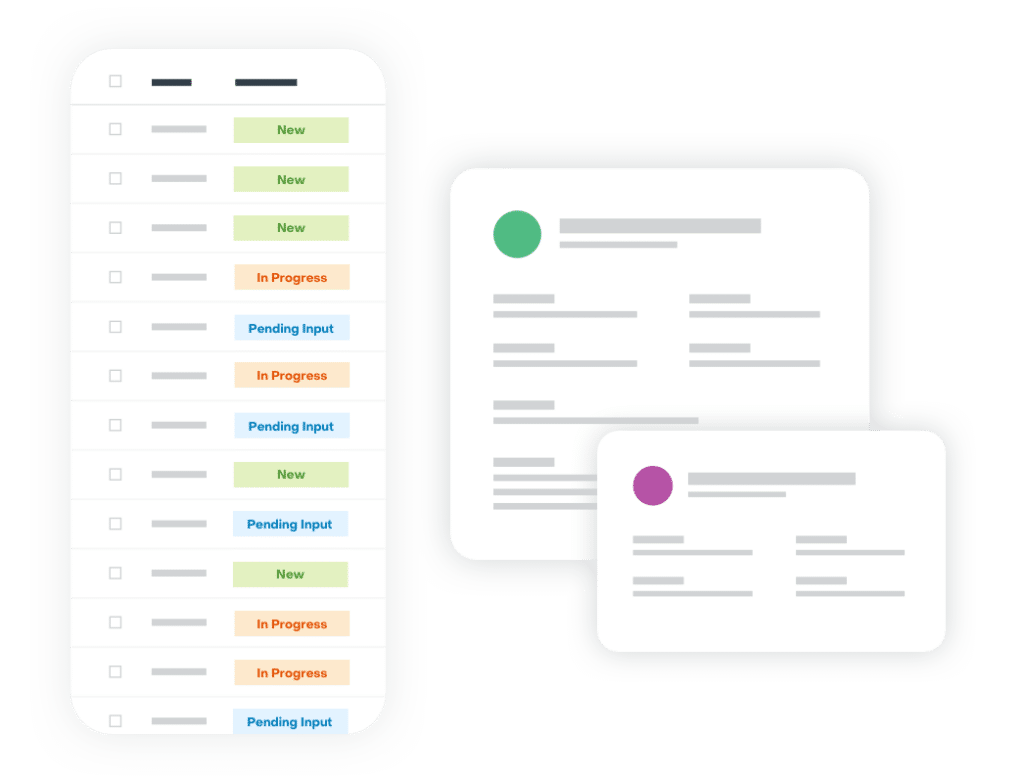
Lead Management
In manufacturing, sales journeys are incredibly intricate and complex. With the help of a robust CRM, these companies can track and manage leads throughout the sales pipeline, ultimately leading to improved sales revenue.
- Tracking and Capturing Leads: Robust CRM solutions allow manufacturers to capture leads from various sources, such as website interactions, social media, marketing campaigns, and trade shows. Once captured, your CRM can automatically assign these leads to appropriate sales reps, depending on their lead interest and rep competencies for follow-up interactions.
- Lead Qualification and Scoring: Manufacturers can set qualification criteria within their CRMs, accelerating the lead qualification and scoring process and increasing accuracy. Using lead scoring algorithms, CRM can assign scores to all leads entering the CRM based on their likelihood to convert, allowing sales representatives to prioritize leads with the highest conversion potential.
- Lead Nurturing: CRM solutions can empower enterprises in their lead nurturing efforts by automating personalized communication with leads across their journeys. From automated emails to drip campaigns and targeted content, CRMs and sales and marketing automation solutions can help provide the correct information to each lead based on their needs and interests at the right time. In the long run, this enables manufacturers in their lead nurturing and conversion efforts.
- Sales Pipeline Management: With intricate customer journeys come numerous challenges. Regarding sales pipeline management, CRM solutions can help manufacturers track leads as they progress through the pipeline, update lead status, forecast potential revenue, identify bottlenecks, and empower enterprises to elevate their resource planning efforts.
- Lead Attribution and Reporting: With the help of a CRM tool, manufacturers can pinpoint relevant lead details, such as lead source, conversion rates, and revenue generated by different marketing campaigns. With the help of attribution information, manufacturers can efficiently optimize marketing and sales strategies, improve budget allocation, and invest in initiatives most likely to yield the highest revenue.
Predictive Analytics and Generative AI
Robust CRMs today feature advanced analytics and generative AI capabilities. Infused with predictive analytics, CRMs can help manufacturers generate valuable insights into customer behavior, identify and act upon market trends, and make overall better strategic decisions.
On the other hand, CRM solutions that feature generative AI capabilities can become personal assistants for employees across all departments, from sales to marketing and support. Here’s how generative AI within a CRM can completely shift the way manufacturers operate:
- Compose personalized sales and marketing content
- Quickly find answers and recommendations for each scenario that you encounter on your day-to-day operations, regardless of the department involved
- Summarize customer data and information in such a way as to facilitate customer interactions for sales, marketing, and support
- Create ad-hoc reports and workflows depending on your current scenarios.
2. Elevate Customer Engagement With a Robust CRM
Customer engagement is critical for all businesses, not just manufacturing ones. It’s the foundation for building strong customer relationships, boosting loyalty, and organically driving business growth. Thus, it makes sense to develop strategies that enhance customer engagement. 360-degree CRMs are the golden ticket to successful engagement strategies.
Provide a Complete View of Each Customer
As a central hub of all data, interactions, and communications, CRM tools can elevate customer interactions and, thus, engagement. Businesses can get insights into each customer’s interactions, preferences, and purchase history with just a few clicks. With a complete understanding of your customers, you can effortlessly adapt communication and marketing strategies to develop strong relationships and grow a loyal customer base.
Automated Communications
Robust CRM solutions allow manufacturers to automate customer communications. If your CRM has generative AI capabilities, these efforts will be further elevated, allowing businesses to keep in touch and easily engage with customers and prospects. CRMs allow you to set up automated email campaigns and reminders based on their behavior, interests, and other variables set up in their CRMs. In the long run, automated communications have been shown to boost customer retention and engagement.
Personalized Interactions
Not all customers prefer the same communication outlets, which has been established to impact engagement and loyalty. Personalization has been shown to effectively grow customer experience(CX) levels and, subsequently, boost revenue. CRM tools can help manufacturing businesses achieve this by accessing data on customers and behavior. Companies can personalize all customer interactions by tailoring messages that fit their needs and circumstances, offering relevant product recommendations, and making them feel valued as part of a larger ecosystem.
Cross-Selling and Upselling Opportunities
While many businesses think of cross-selling and upselling as mere ways to increase their revenue, these are also great for creating proper levels of customer engagement. CRM solutions can help identify auxiliary or complementary products by analyzing customer information and making relevant recommendations. When customers feel that their needs are seen and accounted for, they feel more valued and engaged with your enterprise.
Customer Sentiment Analysis
Based on CRM data from surveys and support interactions, manufacturing enterprises can quickly conduct sentiment analysis to support customer engagement strategies. Sentiment analysis is a great way to detect potential issues with products, services, and experiences. By leveraging your CRM to identify gaps in your operations that might damage customer engagement, you can proactively develop strategies that remove those challenges, bringing CX to levels where customers feel confident in your collaboration, products, and services.
What Role Does Generative AI Play In Crafting Successful Strategies?
With the emergence of generative AI models embedded into CRM solutions, how businesses operate and craft their strategies drastically changed. Apart from sales and customer engagement strategies, generative AI can aid organizational strategy by:
- Faster decision-making: Generative AI can reduce the necessary time to make strategic business decisions. Real-time data insights allow stakeholders to respond quickly to market shifts and adapt their strategies without overlooking essential aspects.
- Data-driven innovation: Innovation is critical for manufacturers. Generative AI can help them innovate based on valuable and relevant data sets within their CRMs, providing fresh insights based on market trends, fostering creativity, and identifying unexplored solutions.
- Enhanced customer engagement: Generative AI can enable businesses to engage with customers on a deeper, more personal level, fostering better relationships and elevating their overall experience with each interaction with your company.
- Risk reduction: Predictive analytics and generative AI can help organizations identify potential risks, allowing businesses to implement proactive risk management strategies.
It’s a Wrap!
Manufacturing operations are intricate, complex, and feature long sales cycles. However, with the right tools and features, these businesses can build a solid foundation for successful operations while boosting market resilience in the face of shifting trends, customer needs, preferences, and buying patterns.
Curious to learn more about leveraging CRM data for manufacturing enterprises? Watch our Data Mastery Best Practices: How to Win Sales with Analytics webinar and learn how data management, data lakes, and data warehouses are used by manufacturers to connect the multitude of manufacturing and enterprise systems with CRM data to identify new sales opportunities and grow share of wallet at key accounts.


